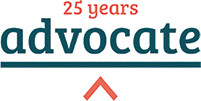
- Q&A: Why do you do pro bono work?
- What does the future pro bono landscape look like?

‘Pro bono work for me has always been a way of recognising that we live in an imperfect society where the needs of often vulnerable and needy people go unmet. Organisations such as Young Legal Aid Lawyers (YLAL) have been instrumental in lobbying on behalf of practitioners who experience the frustrations of seeing these cracks prevent countless individuals from access to justice. As such, pro bono work must be viewed as one way of holding up a creaking justice system while work is done to remedy the flaws that have appeared in our legal aid system.
Despite that rather tempered introduction, I have to stress that doing cases via Advocate and other pro bono organisations has been invaluable for my practice. I have been able to assist people irrespective of their financial status and have had the privilege of getting to know my clients and their life stories. You would be mistaken to think that pro bono work means straightforward work. Unfortunately, practitioners taking on pro bono work will inevitably come across clients who have meritorious and complex cases but who are locked out of the justice system.
Over the last few months, I have been fortunate to have had the capacity to take on pro bono cases touching family and Court of Protection law. A notable case that I have worked on involved advocating the interests of a mother at a final hearing who had sadly suffered from a mental health episode while the child was in her care; without the involvement of a legal professional, she would not have been able to walk away from the proceedings with a structured and well-thought-out plan which would eventually enable her to have direct and unsupervised time with her child.
Chambers, such as my own, have stepped up to offer specialist advice and assistance through partnership with agencies on-the-ground that can triage and direct legal queries accordingly. A more collaborative and joined-up way of doing pro bono helps everyone involved by removing any barriers that inadvertently prohibit individuals from being able to discuss their legal matters with the right type of practitioner.
Spire Barristers’ recent collaboration with Temple Legal Centre also means that pro bono assistance can be given in a manageable way that doesn’t place unrealistic demands on any one barrister offering pro bono advice. I also highlight the fact that quite often, and usually in less complicated cases, a huge difference can be made if a client simply has 10-20 minutes of advice from a specialist lawyer.
I firmly believe that pro bono work could and should form part of any practitioner’s practice. That may sound like a lofty and idealistic statement, but the reality remains that no matter how well-funded the legal aid system may be (and it certainly is not at the moment), there will always be those who, for whatever reason, will be blocked from accessing justice. It would be wrong to suggest pro bono itself is a panacea towards enabling access to justice, but it certainly plays an important part.’

‘I volunteer with Advocate and have recently been selected to sit on the Young Bar Advocate Committee. Beyond this, I help at my local Citizens Advice and volunteer as and when I can. I have also worked on the Innocence Project.
Pro bono work makes you stop and think. At the Bar, things are very fast-paced and you will be dealing with so many different cases on a weekly basis. Pro bono work, although ‘just another case’, is important because you realise that this individual has come to you because they have nowhere else to go. It allows you to give something back to the community and boost your own morale. It reminds you why you are doing this job: to help others.
At the Bar there is a great emphasis placed on pro bono work. When you are training, it is one of the best experiences you can get on your CV. I think that the opportunities are endless, and practitioners have realised that it is not only undertaken to benefit a client but it also helps develop your own skills as an advocate. As a junior lawyer, you will find yourself having a lot more control over a case. Pro bono work frequently affords advocates an opportunity to practise in an area of law that isn’t their main practice area.
From the Bar’s point of view, it seems one of the main drawbacks of doing pro bono work is the worry that there will be no one managing the case with you. Usually, you would have your clerks or an instructing solicitor who is working with the client. The reassurance that there will be support available to you as an advocate will definitely encourage lawyers to get involved. The flexibility in choosing the types of cases you help on is also vital. As mentioned above, one of the main reasons a lawyer may be undertaking pro bono is to get some experience in another field of law, so having the ability to select from a pool of cases is a great way to attract more lawyers to get involved.’










